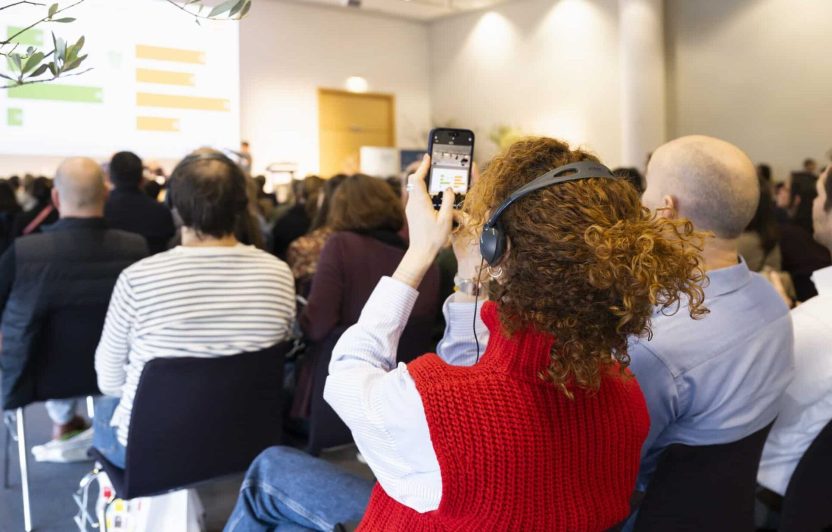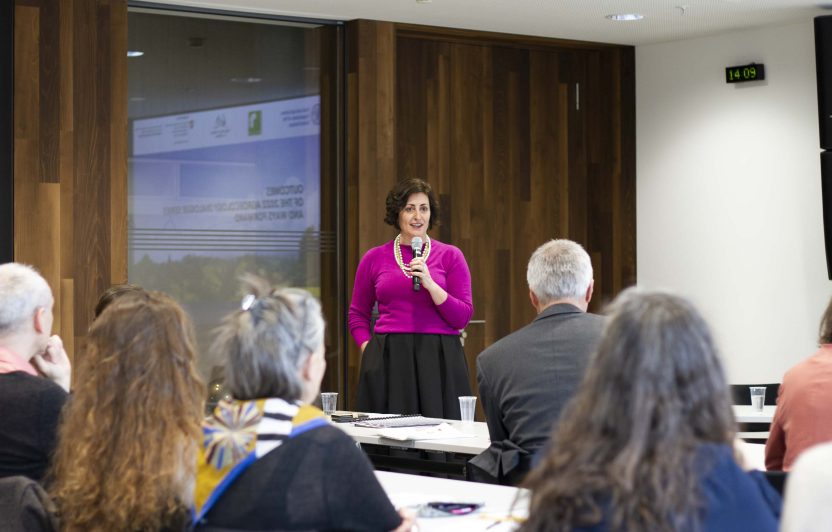In Murang’a County, 50 km north of Nairobi, parliament ratified a law in 2022 that establishes agroecology as a path to long-term food security (Murang’a County Agroecology Development Act). The main goal is to work only with sustainable cultivation methods. This sets an important political course for actually achieving the second UN Sustainable Development Goal of zero hunger in Murang’a by 2030. In the past, synthetic chemical pesticides were used here in such an uncontrolled manner that avocados and other fruits could no longer be exported to the European market due to the high pesticide residues. This meant that a large part of the sales market for the farmers was lost, and the urgency to find a sustainable solution grew.
Murang’a district assumes a pioneering role
On a political level, Biovision is working with partner organisations in six counties to find sustainable solutions in the food system. It is particularly gratifying that the law has now been ratified in the county that is considered to be one of the most important vegetable growing areas in Kenya: Murang’a. Our partner organisation there, the Institute for Culture and Ecology (ICE), led the process of drafting the law with the population and received considerable support from Biovision. Fabian Kohler, who is responsible for our agroecological development projects, sees this success story from Murang’a as a great opportunity: “Now the farmers have a clear idea of how they can build up their production in a way that is fit for the future. And through our partner organisations, we provide them with targeted support in converting to agroecological methods.”

From aggrieved to active
To develop the law, small farmers met with representatives from politics, research and industry. Cross-sector groups discussed key topics and worked together to find solutions to specific problems, such as the high use of pesticides in the region. The results were then presented and discussed in plenary sessions. A steering committee ensured that these results were incorporated into the legislative proposal (Biovision also uses the approach of bringing all stakeholders to the table in Switzerland; see article on p. 8/9). Faith Gikunda is a project coordinator at ICE and co-led the process in Murang’a: “With this approach, a lot of money and resources have to be spent before you can get results. Some organisations helped us by printing flyers to advertise the launch event or by providing food for the participants. But the process was largely financed and thus made possible by Biovision.” Since the reform of the Kenyan constitution in 2010, active public participation is now required in the development of new laws. But examples of this in practice are few. Faith Gikunda beams when she talks about the successful process: “We are trailblazers. No one else has implemented it in this way before, and we’re pioneering many other initiatives.” Similar ambitions for sustainable food security are already underway in Kenya. They follow the example of Murang’a, where the county government has already announced plans to develop a training plan for agroecological practices and invest 10 % of the agriculture budget in agroecology.
Video from the TV station NTV Kenya on the celebration of the adoption of the “Agroecology Development Act”. With voices from our partner organisation Institute for Culture and Ecology, ICE.
A strong network as the key to success
The success in Murang’a is based not least on the fact that Biovision has built up a strong network over the last decades and enjoys the trust of many local organisations. Hans von Zinkernagel, who is responsible for policy advocacy projects at Biovision, explains the approach in this way: “It is the partnership with organisations like ICE that enables us to achieve long-term goals such as empowering local people and promoting appropriate policy frameworks.” ICE has been active in the fields of agroecology and policy advocacy for more than 15 years. Its staff interacts with farmers daily, and they are familiar with the local conditions. As in Murang’a, Biovision is increasingly playing a decisive role in two areas at once: On a political level, we support multistakeholder platforms, and on a practical level, smallholder farmers receive support and are trained in agroecological farming methods. Last year, Biovision supported 20 multi-stakeholder platforms in this way and, together with local partners, informed more than 2500 people about participating in and shaping political frameworks in food systems.
Strengthened stakeholders and a conducive framework for agroecology
In order to bring about sustainable change in our food systems, Biovision works to create conducive environments that contribute to the spread of agroecology at all levels. To this end, we bring together policy makers, researchers and institutional funders. We also identify solutions and act as a catalyst. We provide relevant, systemic knowledge to local stakeholders from civil society, the academic community, small and medium-sized businesses and politicians. This enables them to campaign for change in their respective environments.






